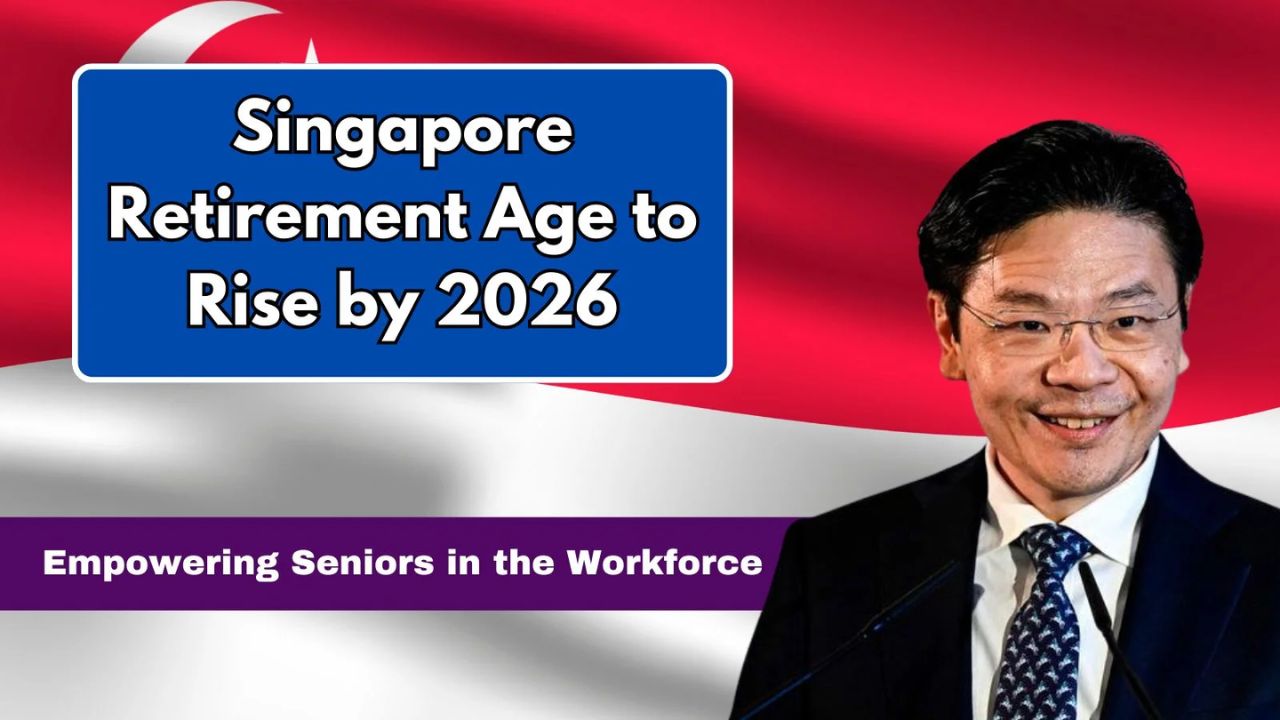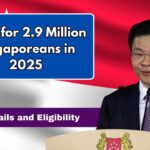Singapore Retirement Age: Singapore is proactively addressing the challenges of an aging workforce by extending the Singapore retirement age and creating a more inclusive labor market. These efforts are designed not only to harness the experience and skills of older employees but also to ensure they remain financially secure and engaged in the workforce.
Gradual Increase in Singapore Retirement Age and Re-Employment Age
One of the most notable updates is the progressive increase in the Singapore retirement age and re-employment age. Currently, the official retirement age in Singapore stands at 62, while the re-employment age is 65. By 2026, these ages will rise to 64 and 69, respectively. The government’s long-term vision is to further raise the retirement age to 65 and the re-employment age to 70 by 2030.
This forward-thinking approach recognizes longer life expectancy and the need for older Singaporeans to stay financially independent. By extending working years, the government ensures seniors enjoy greater job security, consistent income streams, and a sense of purpose through active workforce participation.
Financial Incentives for Employers to Support Senior Workers
To complement the extension of the Singapore retirement age, the government has introduced various financial incentives for employers. The Senior Employment Credit (SEC) program has been extended until December 31, 2026. This initiative offers wage offsets to businesses that hire or retain Singaporean workers aged 60 and above who earn up to $4,000 a month. Depending on the employee’s age and salary, the offset can be up to 8% of wages paid.
These incentives reduce the financial burden on employers while encouraging them to tap into the invaluable experience of older workers. They also help ensure that businesses remain competitive in an evolving economy.
Also Read – Skoda Slavia 2025 launched with full high level luxury features in market
Enhanced CPF Contributions for Older Workers’ Security
To further strengthen the financial security of older workers, the government has introduced the CPF Transition Offset. This program helps employers manage the increase in CPF contributions for workers aged 55 to 70. By covering 50% of the increase in employer contributions, the initiative ensures that senior employees benefit from enhanced retirement savings without adding strain to businesses.
This move aligns with the broader retirement security strategy for seniors in Singapore. As CPF contributions gradually increase, older workers can look forward to a more secure retirement.
Promoting Flexible Work Arrangements for Seniors
Recognizing that older employees may prefer alternative work arrangements, Singapore is championing Flexible Work Arrangements (FWAs). These arrangements give seniors the flexibility to balance their personal and work lives while remaining in the workforce.
Additionally, the Part-Time Re-Employment Grant (PTRG) has been extended to 2025, offering up to S$125,000 to employers who support part-time re-employment opportunities for seniors. This grant helps businesses adapt to the changing needs of older workers while fostering an inclusive environment.
Employers are also encouraged to adopt Structured Career Planning (SCP), enabling senior employees to explore new roles that suit their evolving skills and preferences. These initiatives create a win-win situation, benefiting both businesses and older workers.
Tripartite Workgroup on Senior Employment: Shaping a Better Future
To keep policies relevant and effective, Singapore has established the Tripartite Workgroup on Senior Employment. This workgroup brings together representatives from the government, labor unions, and employers to review and refine policies related to the Singapore retirement age and senior employment.
This collaborative approach ensures that all stakeholders have a say in creating a supportive environment for senior workers, helping Singapore stay ahead in managing demographic changes.
Why These Changes Matter for Singapore’s Aging Workforce
These updates to the Singapore retirement age and employment policies reflect the nation’s commitment to building a sustainable economy and a socially inclusive society. The key benefits include:
✅ Enhanced Financial Security – Longer working years mean seniors can continue earning and remain financially independent.
✅ Valued Skills and Experience – Older workers mentor younger colleagues, boosting productivity and knowledge-sharing.
✅ Competitive Businesses – Companies retain institutional wisdom and reduce recruitment costs.
✅ Age-Inclusive Workplaces – Flexible and part-time work promotes diversity and social cohesion.
✅ Economic Stability – More working seniors sustain growth and support a strong social safety net.
Conclusion: Building a Resilient Workforce for All Ages
Singapore’s evolving policies on the Singapore retirement age and senior employment highlight a balanced, inclusive strategy that benefits everyone. By extending retirement ages, providing financial support for businesses, enhancing CPF contributions, and embracing flexible work arrangements, Singapore is creating a dynamic, age-friendly workforce.
As these initiatives take shape, Singapore sets an inspiring example for other nations grappling with aging populations. Here, age is not a barrier—it’s a strength, enriching workplaces and fostering a future-ready economy.
Some Important Link
| Telegram Group | Click Here |
| WhatsApp Group | Click Here |
| Home Page | Click Here |










